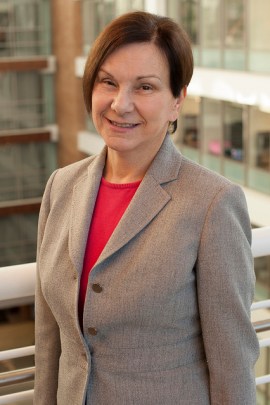The Food and Drug Administration has more than 700 job vacancies in its division that approves new drugs, and top officials say the agency is struggling to hire and retain staff because pharmaceutical companies lure them away.
“They can pay them roughly twice as much as we can,” Janet Woodcock, who directs the FDA’s Center for Drug Evaluation and Research (CDER), said at a rare-diseases summit recently in Arlington, Va.
The FDA has been under fire for taking too long to approve new drugs, despite approving a record number of generic drugs in 2015. Although it met its goal of hiring 1,000 new employees to help clear the backlog of unapproved generics, that program had nearly 200 job vacancies as of Sept. 30. And CDER itself had 711 openings out of 5,525 positions at the end of September, according to spokeswoman Theresa Eisenman — meaning that more than 1 out of 8 positions were empty.
Most openings have occurred as the result of new laws or initiatives increasing the FDA’s workload and creating new positions. The agency has had a difficult time accelerating its hiring in response, but the pace has picked up, Eisenman said. CDER continues to utilize employees borrowed from elsewhere within the FDA and contract workers to help fill the breach.
Should the center not come much closer to full strength, said panelist Peter Saltonstall, president and chief executive of the National Organization for Rare Disorders, the FDA won’t be able to speed approval of orphan drugs.
Woodcock wrote in December that staffing was a priority in 2016 because the center had “more than 600 staff vacancies.” At the Arlington event, she called the federal hiring system “challenging,” adding that prospective candidates often take other jobs while waiting for the FDA to make an offer.
“We move rather slowly — like a snail might be a better analogy,” agreed Peter Marks, director of the FDA’s Center for Biologics Evaluation and Research. “A young person with a family can’t wait four months for us to get through some of the federal hiring process. So if they have something else that’s more . . . expedient, they will take that.”
Marks’s team has 96 vacancies out of a ceiling of 1,137 positions, Eisenman said. Biologics are prescription drugs derived from living cells, and they’re approved separately from other drugs under Woodcock’s team.
In addition to lower federal salaries, Woodcock said new employees must divest any stock they have in companies related to food or drugs before they begin working at the FDA — and that can similarly deter good candidates.
“If we wish to hire people who are experienced from the industry, we have a great deal of trouble . . . with their pension funds and other assets that they may have had,” she said. “I’ve recently just had dreadful experiences in bringing people on. And some people just won’t come. I’ve had a lot of people turn us down because they simply can’t take the hit.”
The 21st Century Cures Act, which passed the House in 2015 and has not yet been approved by the Senate, could help the agency meet its hiring goals. A portion of the multibillion-dollar bill would amend existing law to make FDA postgraduate degree requirements less strict for some positions.

Janet Woodcock directs the FDA’s Center for Drug Evaluation and Research (Courtesy of Michael J. Ermarth/FDA).
“The degree changes are intended to ensure all centers are getting the experts they need,” said Jennifer Sherman, a spokeswoman for the House Energy and Commerce Committee. The agency’s Office of Device Evaluation, for example, “needs engineers.”
The bill also would allow the FDA to offer higher pay without prior approval from the executive branch, as long as the amount is less than the president’s $400,000 annual salary.
The FDA has starting salaries up to $160,300 per year, according to listings on USAJobs.gov. CDER’s employment page includes 20 different types of job opportunities, but only four of them are listed as “open.” The rest are either “coming soon” or “closed.”
House Minority Leader Nancy Pelosi (D-Calif.) said last month that she expected 21st Century Cures to pass soon but that its supporters will need to “build consensus.” House Speaker Paul D. Ryan (R-Wis.) had said in late September that the legislation would be on his to-do list when Congress returns to work this month. How to pay for it remains a major issue.
The pharmaceutical industry trade group considers FDA staffing a concern, with Nicole Longo, a spokeswoman for Pharmaceutical Research and Manufacturers of America, saying that the agency “must keep pace with the increasing number and complexity of medicines entering the review pipeline in order to make safe and effective new medicines available to patients expeditiously.”
Joshua Sharfstein, a former principal deputy commissioner, suggests there should be as much focus on effective recruiting as on salary.
“I don’t think the issue is so simple as we need to pay more than the pharmaceutical industry,” he said. “People come to FDA in part because they really want to contribute to the national approach to pharmaceutical regulation.”
This story was produced by Kaiser Health News, an editorially independent program of the Kaiser Family Foundation.



